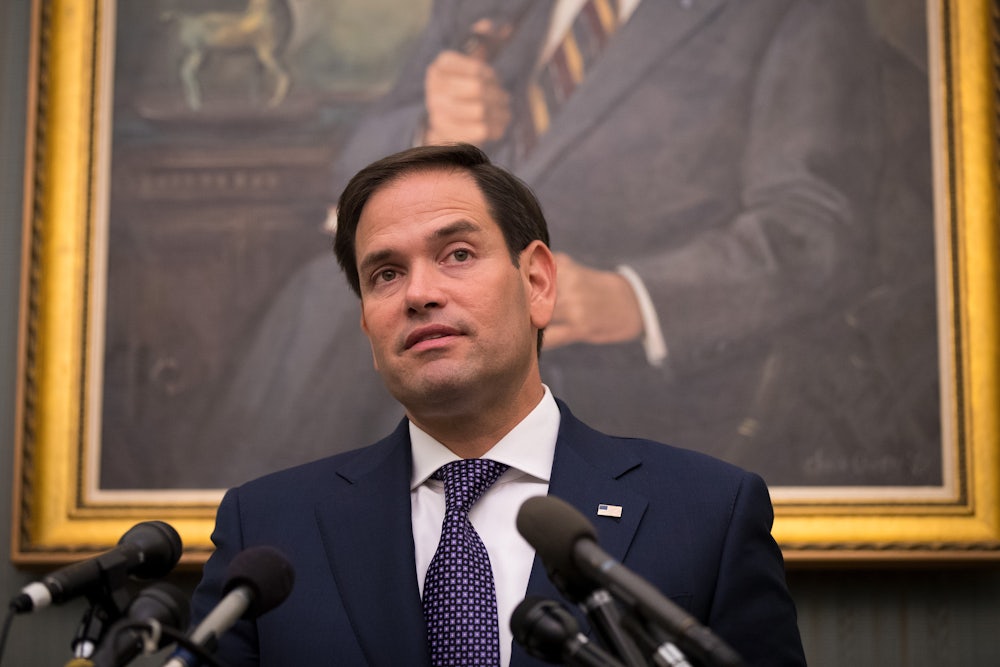Rubio had a complicated relationship with the Tax Reform and Jobs Act, which was signed into law by President Trump last week. In mid-December, days before the final vote, Rubio criticized the bill for doing too much to help corporations and the wealthy and not nearly enough to help everyone else. In particular, Rubio was irked by the fact that his colleagues “didn’t have much trouble finding a way to lower the the top tax bracket and to start the corporate tax cut a year early,” but couldn’t find additional money for lower-income taxpayers. But as soon as Republicans modestly increased the child tax credit, Rubio voted in favor of the bill.
Now that the bill has been signed, however, Rubio is once again expressing his misgivings. In an interview with The News-Press, Rubio was asked to reflect on his vote in favor of tax reform:
If I were king for a day, this tax bill would have looked different. I thought we probably went too far on (helping) corporations. By and large, you’re going to see a lot of these multinationals buy back shares to drive up the price. Some of them will be forced, because they’re sitting on historic levels of cash, to pay out dividends to shareholders. That isn’t going to create dramatic economic growth. (But) there’s a lot of things in the bill that I have supported for a long time (such as) doubling the Child Tax Credit. And it is better – significantly better – than the current code.
This contradicts every GOP talking point about the tax bill. Over the last two months, Republicans have insisted that cutting corporate taxes was the only way to stimulate the economy and grow wages. Here, however, Rubio reveals that he knew all along that wasn’t true. Changes to the Child Tax Credit, moreover, are minor compared to lowering the corporate tax rate from 35 to 21 percent, which Rubio is criticizing here.
Rubio shrugged when asked about the political impact of the bill, telling the News-Times that its dismal public approval numbers will improve when people see their paychecks go up. “By the time we get to November of next year, their opinion about the tax bill is not going to be based on media coverage. It’s going to be based on what their paycheck is telling them.” Maybe. In November of next year the unpopular nucleus of the tax bill—the corporate tax cut—will be just as real as the small paycheck bumps Rubio thinks will save this bill politically.
